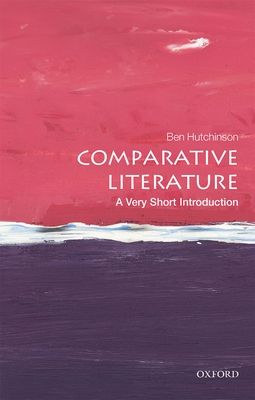Home
Comparative Law: A Very Short Introduction
Loading Inventory...
Barnes and Noble
Comparative Law: A Very Short Introduction
Current price: $12.99


Barnes and Noble
Comparative Law: A Very Short Introduction
Current price: $12.99
Loading Inventory...
Size: Audiobook
*Product Information may vary - to confirm product availability, pricing, and additional information please contact Barnes and Noble
Very Short Introductions
: Brilliant, Sharp, Inspiring
Comparative Law: A Very Short Introduction
aims to offer a concise introduction to Comparative Law—its objectives, methods, concepts and uses. After an overview of the fundamental definitions, key concepts and basic lexicon of the discipline, the book proposes an analysis of the most successful techniques adopted in legal comparison for mapping the world's legal systems and for explaining legal change and diffusion of law, also giving a concise description of the legal traditions of the world.
It also offers an account of the competing approaches adopted over time in comparative endeavours, from functionalism to culturalism and postmodernism, and highlights the different emphasis placed by each of these approaches on commonalities, faith in universal law and convergence, or on divergence and irreducible differences. Finally, the book provides readers with an understanding of the practical use of comparative law, describing how legal comparison is employed both in law-making and in adjudication, supplementing legal reasoning and interpretation.
ABOUT THE SERIES: The
series from Oxford University Press contains hundreds of titles in almost every subject area. These pocket-sized books are the perfect way to get ahead in a new subject quickly. Our expert authors combine facts, analysis, perspective, new ideas, and enthusiasm to make interesting and challenging topics highly readable.
: Brilliant, Sharp, Inspiring
Comparative Law: A Very Short Introduction
aims to offer a concise introduction to Comparative Law—its objectives, methods, concepts and uses. After an overview of the fundamental definitions, key concepts and basic lexicon of the discipline, the book proposes an analysis of the most successful techniques adopted in legal comparison for mapping the world's legal systems and for explaining legal change and diffusion of law, also giving a concise description of the legal traditions of the world.
It also offers an account of the competing approaches adopted over time in comparative endeavours, from functionalism to culturalism and postmodernism, and highlights the different emphasis placed by each of these approaches on commonalities, faith in universal law and convergence, or on divergence and irreducible differences. Finally, the book provides readers with an understanding of the practical use of comparative law, describing how legal comparison is employed both in law-making and in adjudication, supplementing legal reasoning and interpretation.
ABOUT THE SERIES: The
series from Oxford University Press contains hundreds of titles in almost every subject area. These pocket-sized books are the perfect way to get ahead in a new subject quickly. Our expert authors combine facts, analysis, perspective, new ideas, and enthusiasm to make interesting and challenging topics highly readable.


















